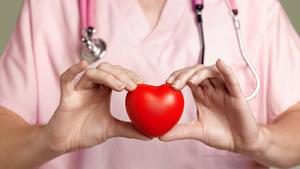Common Heart Attack Symptoms
 Warning signs for a heart attack include discomfort in the chest and upper body, shortness of breath, nausea, lightheadness and cold sweats, according to the American Heart Association. Upper body discomfort may occur in the jaw, back, arms, neck or stomach.
Warning signs for a heart attack include discomfort in the chest and upper body, shortness of breath, nausea, lightheadness and cold sweats, according to the American Heart Association. Upper body discomfort may occur in the jaw, back, arms, neck or stomach.
Additional possible symptoms of a heart attack include anxiety or a fear of impending death, coughing or wheezing, including coughing up blood, fatigue, lack of appetite and a rapid or irregular pulse, according to WebMD. The common warning sign of chest pain typically occurs on the left side of the chest beneath the breast bone. Swelling in the feet, ankles and legs or in the abdomen may also be a warning sign of an impending heart attack. Abdominal swelling may also accompany the lack of appetite and nausea, leading to vomiting. Unusual feelings of weakness may be felt in the days and hours prior to a heart attack.
When to Call a Doctor
When you take care of someone with heart disease, keep an eye on his symptoms and learn when it’s time to call the doctor.
If he shows any of these signs, get in touch with the doctor’s office:
- Feeling of fullness in the stomach with a loss of appetite or nausea
- Extreme fatigue or less able to complete daily activities
- Respiratory infection or cough that gets worse
- Fast heart rate (above 100 beats per minute)
- New, irregular heartbeat
- Chest pain or discomfort during activity that goes away with rest
- Trouble breathing during regular activities or at rest
- Changes in sleep patterns, such as trouble sleeping or feels he needs to sleep a lot more than usual
- Pees less than usual
- Gets restless or confused
- Constant dizziness or lightheadedness
- Nausea or poor appetite

